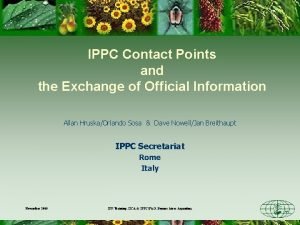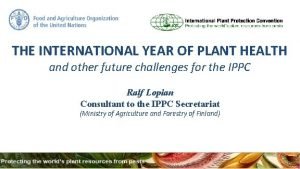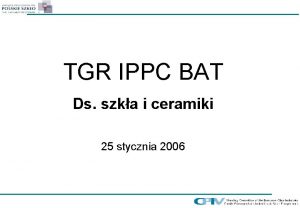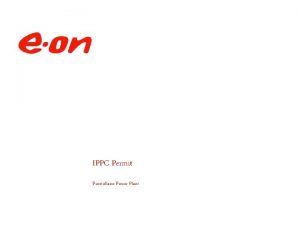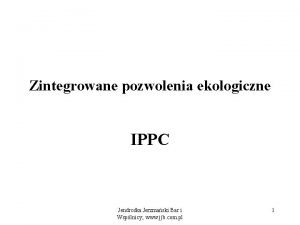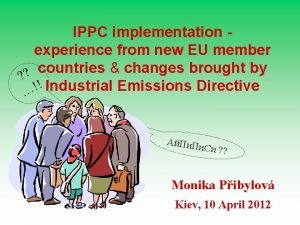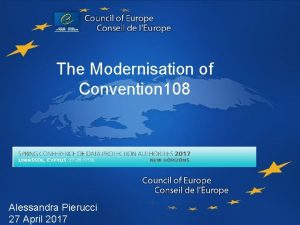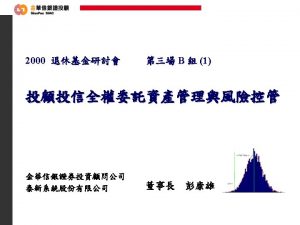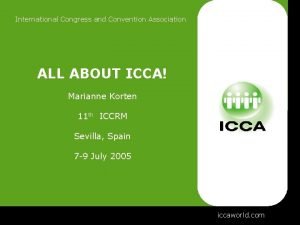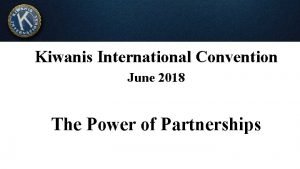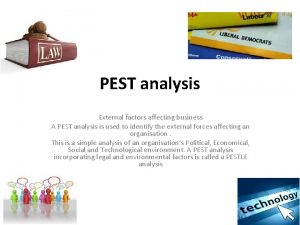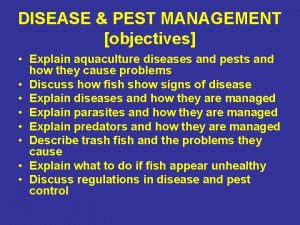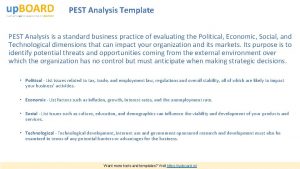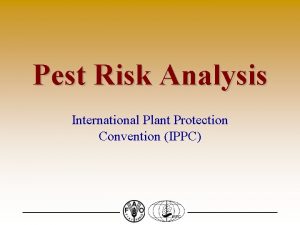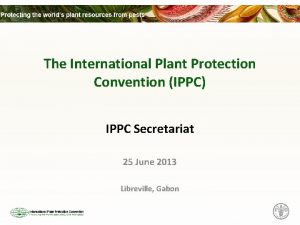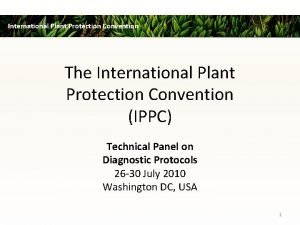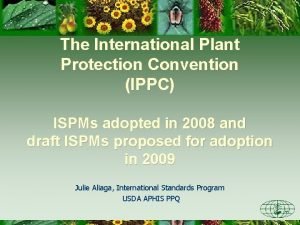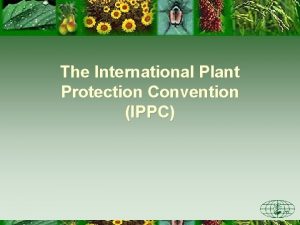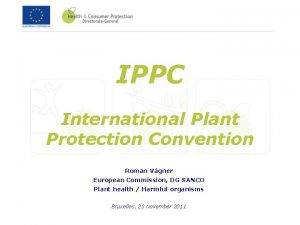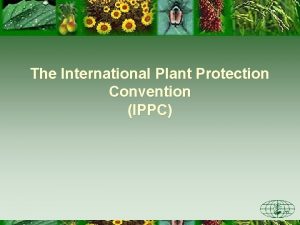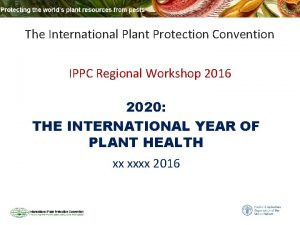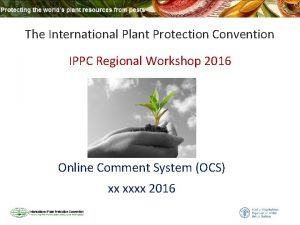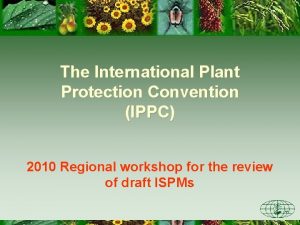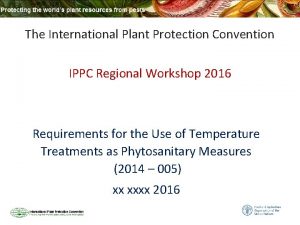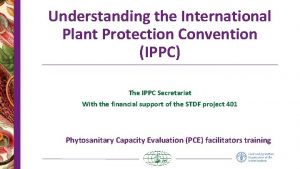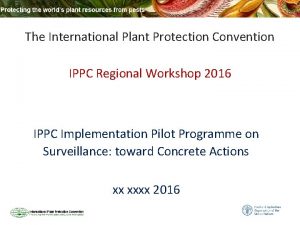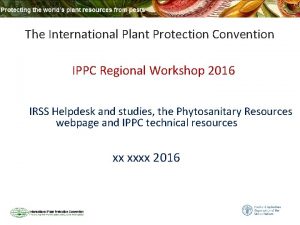Pest Risk Analysis International Plant Protection Convention IPPC















- Slides: 15

Pest Risk Analysis International Plant Protection Convention (IPPC)

SPS Definition • Risk assessment -- the evaluation of the likelihood of the entry, establishment, or spread of a pest or disease … and the associated potential biological and economic consequences. . . (SPS Annex A)

IPPC Definition • The process of evaluating biological or other scientific and economic evidence to determine whether a pest should be regulated and the strength of any phytosanitary measures to be taken against it -- (1997 IPPC)

PRA Obligations • SPS Article 5. 1 -- Members shall ensure that … phytosanitary measures are based on an assessment … of the risks … • IPPC Article II -- technically justified (phytosanitary measures) justified on the basis of conclusions reached by using an appropriate pest risk analysis. . .

Standards and PRA • Phytosanitary measures must be based on international standards or justified on the basis of PRA (SPS Articles 3 & 5) • Deviations from standards must be justified by PRA (SPS Article 5) • Provisional (emergency) measures must be reviewed using PRA (SPS Article 5)

PRA and Trade • Few specific phytosanitary standards have been done, therefore most phytosanitary measures must be justified by PRA • PRA is used to: – justify protection measures affecting trade – evaluate or challenge other’s measures – encourage technical dialogue/info sharing – prioritize risk management and research

The Role of Scientists • Recognize that regulatory policy is dependent on scientific inputs • Actively participate, support, and influence regulatory decision-making with tradesensitive scientific inputs • Ensure that plant pests are only a barrier to trade when and where appropriate

Evolution of PRA in the IPPC • ISPM 2: Guidelines for PRA • Supplementary standards – Pest categorization – Probability of introduction – Economic impact – Risk management

… And More Evolution Concept standard: Guidelines for PRA (to be revised) Supplementary Standards Pest Risk Analysis for Quarantine Pests Pest Risk Analysis for Regulated Non-Quarantine Pests

Stages of PRA • Initiation • Risk Assessment – probability – consequences • Risk Management • Transparency – uncertainty

Initiation Stage • Pest-initiated – detection (interception or incursion) – research or biological control • Pathway – commodity evaluation – other regulated article – policy review or change

Risk Assessment Stage • • • Presence/absence/distribution Official control Introduction potential Establishment potential Spread potential

Elements of Risk Assessment Consequences Probability • • • With pathway Escapes detection Survives transit Favorable location Overcomes resistance Able to reproduce and spread • • Direct economic Indirect economic Environmental Other: – Political – Social – aesthetic

Risk Management Stage • Identify options • Evaluate options for: – efficacy – feasibility – impacts

Transparency • • Document information sources Identify processes/methods Provide rationale for conclusions/decisions Describe uncertainty and identify data gaps or areas for additional research
 Ippc contact point
Ippc contact point Ippc
Ippc Ippc bat
Ippc bat Ippc permit
Ippc permit Ippc bat
Ippc bat Avinor ippc
Avinor ippc Ippc countries
Ippc countries Danube river protection convention
Danube river protection convention Convention 108 data protection
Convention 108 data protection Liquidity measures
Liquidity measures International congress and convention association
International congress and convention association Kiwanis international convention 2019
Kiwanis international convention 2019 Political factors affecting tesco
Political factors affecting tesco Aquaculture pest analysis
Aquaculture pest analysis Pest analysis template
Pest analysis template C-pest analysis for an event
C-pest analysis for an event
